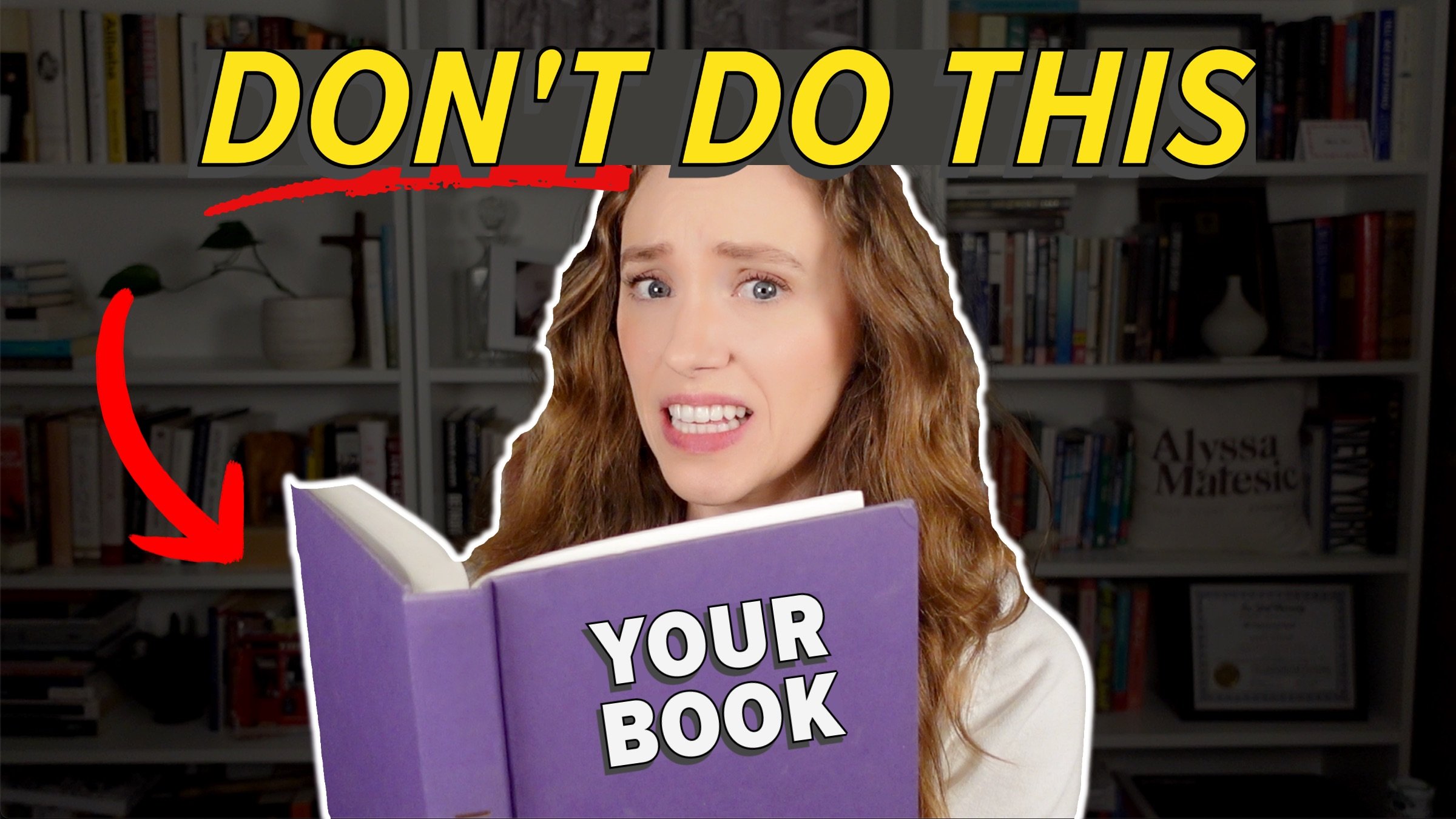How to Improve Your Writing for Free: 5 Free Tools to Improve Your Writing Skills
HIT PLAY OR READ THE POST BELOW:
If you're an aspiring author on a tight budget, it can feel impossible to figure out ways to improve your writing without spending a ton of money. Everywhere you look, you might see writing workshops, courses, or conferences that cost money, and working with a professional editor can also be a significant investment. So, what do you do if you're trying to strengthen your writing but don't have funds to put behind it?
There are many ways to improve your writing abilities without spending a single cent. Today, I'm going to walk through five ways you can improve your writing for free using readily available tools and resources.
1. Read, Read, Read
I truly believe that the best writers are also strong readers, because you absorb so much insight simply from reading others’ work. Now, obviously, books do cost money, but I'm putting this in the “free tools to improve your writing” category because you can always borrow from your library, which I am a huge proponent of.
I speak with many first-time authors who are interested in writing a book, but they haven't read a whole book since high school or college when it was required reading. If you fall into this category, I strongly suggest picking up a book. Read it on vacation or at night or on the weekend. You will be amazed at how much you learn about constructing compelling prose and about how to craft a story from reading others who have done so successfully.
Where should you start with reading if it's not a habit that you have already built? I recommend reading both inside and outside the genre you are trying to write in. That's because reading within your genre helps you understand the reader expectations and conventions and tropes associated with that genre, which is going to be very helpful for you to apply to your own story. But reading outside your genre helps you broaden your understanding of craft and storytelling. Maybe you can even bring elements from other genres into the genre that you are writing.
As you are reading a book, I want you to be entertained by it and feel that immersive quality of it, but also take some time to think critically about what you are enjoying in the story and what you don't like so much. Why are certain techniques and elements resonating with you, and why aren't others?
2. Start a Critique Group
My next tip to improve your writing for free is to start a critique group. It can be nearly impossible to see issues in your own story because you are just so close to it. Getting external feedback is critical if you are serious about becoming a better writer and possibly becoming a published author eventually.
But not everyone has the means to invest in a professional editor, in which case starting a critique group can be a great asset. You could either form an in-person critique group with other writers in your local community, or you could set up an online critique group where you discuss your work on forums or in Zoom meetings.
In a critique group, you will typically share pages of one another's manuscripts and share your feedback on them. So, you will not only be giving feedback but receiving feedback on your own work. In addition, critique groups often share tips and techniques that they've learned elsewhere, so you can all develop your craft together. You might learn something from a member of your critique group that you never knew before.
Writing can often feel like such an isolating endeavor, so building a community like this is only going to help you feel more motivated and help you stay accountable as you pursue your goals.
3. Utilize Online Resources
To learn how to improve your writing for free, spend some time browsing online resources. While you'll find paid courses and workshops, there are countless free tools to improve your writing skills as well — you just have to know where to look.
Free Author and Editor YouTube Channels
The AuthorTube community is truly a treasure trove of information. My YouTube channel has a lot of writing tips and insights that I've compiled over the past years, but I also really admire some other AuthorTubers and EditorTubers (if that's even a word), including:
There are many others, but those are some of my favorites.
Free Websites to Improve Your Writing Skills
There are also a ton of really helpful online blogs and publications with writing advice. Some of my favorite free writing websites include:
Podcasts to Help Improve Your Writing Skills for Free
If you're a podcast person, there are some amazing podcasts about writing and publishing, including:
Grammar Girl’s Quick and Dirty Tips — if you’re interested in more sentence-level help on the mechanics of writing, this is a great podcast for improving grammar and writing skills for free
Now, remember that any writing advice that you're seeing online is ultimately subjective, including my own. Just because you see an expert touting a certain technique or method, unless it is a defined grammar rule, it doesn't necessarily mean you must follow or use it. So, poke around and see what resonates with you.
4. Read Aloud
It's very difficult to sit someone down in a classroom and teach them step by step how to craft a sentence that is poetic and flows effortlessly, but by reading your story aloud, you will begin to pick up on the cadence of language and how to make it smoother and more effective. That’s why this is one of the best ways to improve your writing for free!
For example, it's very easy to pick up on run-on sentences when you're reading aloud because you're going to have to stop and take a breath, and you will see that you will need a period somewhere in there. Similarly, it's very easy to pick up on super choppy sentences when you're reading aloud. You'll also likely pick up on grammatical snafus of other types and typos just from looking at the text on that more intimate level when you're reading it. It's a great technique, especially when you are writing dialogue and you want that dialogue to flow smoothly and reflect how people actually talk.
More broadly, though, reading your work aloud forces you to think about your intention behind every sentence. Is It ultimately contributing to the overarching story, or is it dulling the pace? Reading your story aloud can be very time-consuming, but I do think it's worth doing. I know of many authors who read their entire novels aloud as part of their self-editing process because they truly see that much value in it. So, give it a try!
5. Practice Your Craft
As with most endeavors, with writing, you truly learn it by doing it over and over and over again. Now, this doesn't necessarily mean you have to write every day if you don't have the capacity to do that, but you should begin to develop a writing habit of some kind — a dedicated time and space for you to write and do nothing else. So, block off that time on your calendar.
This is one of the key differences I see between how professional writers approach their work compared to amateur or first-time writers. Professionals take the time to build a solid writing habit. The one way to guarantee that you'll never become a better writer is to sit there and think about writing without actually doing it.
The beauty of writing is that you will continually improve your craft as you go. It's an ongoing skill that's only going to get stronger and stronger as you flex that muscle, so make sure you pay attention to it and give it some love. You don't want that muscle to wither away.
I hope this helped you realize that becoming a better writer doesn't have to cost a thing and there are many resources out there to help you improve your writing for free.
Thanks so much for reading and happy writing!






